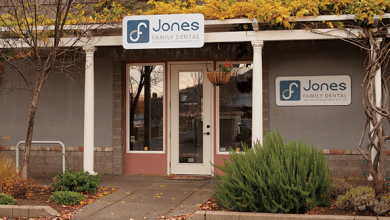Sleep Apnea
Maybe someone has told you that your snore is deafening, or you’ve woken up on more than your fair share of mornings feeling less than refreshed. In those instances, it’s probably pretty obvious something’s up with your sleep. But in the case of obstructive sleep apnea (OSA), a disorder wherein people stop breathing while asleep, sometimes hundreds of times a night, pinpointing the problem can be significantly trickier. We’ve compiled the list of signs and symptoms of sleep apnea below to hopefully make pinpointing easier.
One of the most common signs and symptoms of obstructive sleep apnea (OSA) is loud and chronic (ongoing) snoring. Pauses may occur in the snoring. Choking or gasping may follow the pauses. These brief periods of breathing cessation don’t trigger full alertness, but disrupt sleep enough to leave sufferers groggy in the mornings — and at risk for a number of more serious health problems, often without even realizing there’s a problem. You likely won’t know that you’re having problems breathing or be able to judge how severe the problem is without a sleep study, but a family member or bed partner often will notice these problems before you do.
How common is sleep apnea? Some studies suggest that 1 in 4 men and 1 in 8 women over the age of 50 have obstructive sleep apnea. Children often have issues with tonsils that can create apnea events and developmental/behavioral problems. But anyone can develop obstructive sleep apnea.
Sleep Apnea Symptoms and Signs:
Waking up with a very sore or dry throat sleep, loud snoring, occasionally waking up with a choking or gasping sensation, sleepiness or lack of energy during the day, sleepiness while driving, morning headaches, restless sleep, forgetfulness, mood changes, and a decreased interest in sex, recurrent awakenings or insomnia, you have diabetes or have a history or risk of stroke, memory or learning problems and not being able to concentrate, feeling irritable, depressed, or having mood swings or personality changes, dry mouth or sore throat when you wake up, weight gain.
Left untreated, sleep apnea can have serious and life-shortening consequences: high blood pressure, heart disease, stroke, automobile accidents caused by falling asleep at the wheel, diabetes, depression, and other ailments.
Do you have one or more of these sleep apnea symptoms?
If you or a loved one have obstructive sleep apnea (OSA) or display a combination of the symptoms above, treatment is essential. Come to our office or ask your physician about taking a Sleep Apnea Screening test, which is a simple questionnaire. If you have already been diagnosed with mild to moderate obstructive sleep apnea (OSA), treatment is essential. Talk to your physician or come to our office to discuss treatment options. Treatment includes a device that can pressurize and keep the airway open (CPAP) or an oral appliance that when properly adjusted can pull the lower jaw forward to keep the airway open.




